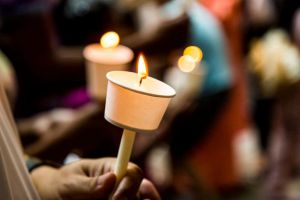 Invisible Wounds: How Communities Carry the Mental Burden of Unsolved Crimes.
Invisible Wounds: How Communities Carry the Mental Burden of Unsolved Crimes.
Angela Mew, Executive Director
July 2025
When a violent crime happens, it doesn’t just hurt one person; it ripples as it touches families, neighbors, and entire communities. And when that crime goes unsolved, the pain doesn’t fade, it weaves into our daily lives, leaving fear, mistrust, and heartbreak in its wake.
At Season of Justice, we know this truth all too well. We hear from families, from survivors, and from communities desperate for answers. But what isn’t always talked about is how these unsolved violent crimes quietly damage the mental health and wellbeing of entire neighborhoods.
When There Are No Answers, the Wounds Stay Open
It’s hard to explain what it feels like to live in the aftermath of a violent crime that never gets solved. For some, it’s sleepless nights and endless community discussions about what happened and why. But for others, it’s a fear that keeps them from letting their children play outside. It’s the gnawing worry every time they walk the dog, go for a night jog or walk through an empty parking lot to quickly get to their cars. These daily routines should feel normal and safe, but for many they’re clouded by fear.
Studies show that after violent crimes occur, more than half of victims and their loved ones report emotional struggles like anxiety, anger, or depression that last for months, and even years (Bureau of Justice Statistics). But when those crimes go unsolved? The fear and grief don’t fade, they grow. Communities exposed to violence see higher rates of PTSD, depression, and other mental health issues. Parents become more protective. Neighbors stop trusting each other. Local businesses suffer. Property rates decrease. Public spaces sit empty. And a neighborhood that once felt alive and vibrant can start to feel disconnected and abandoned.
Lost Trust, Lost Safety
It’s not just about fear. It’s also about trust, which is the glue that holds communities together. When violent crimes happen and no one is held accountable, trust in law enforcement crumbles. And although detectives and investigators are often going above and beyond to solve these cases, when a suspect is not identified, the distrust only increases. People stop calling for help. Witnesses stay silent. A heartbreaking cycle begins: fewer people speak up, fewer cases get solved, and the fear spreads. In some cities, clearance rates for violent crimes are shockingly low and according to the Council of State Governments, the “accountability gap” leaves far too many cases unsolved and communities feeling forgotten and vulnerable to more crimes.
The Missing Conversation: Unsolved Crimes and Community Mental Health
Here’s the hardest part…there’s almost no research on how unsolved violent crimes affect community mental health. We know violence is traumatic. We know communities carry that trauma. But when it comes to the unique collective grief, fear, and uncertainty of unsolved crimes? The silence is deafening. That needs to change because every unsolved case isn’t just an open investigation, it’s an open wound for the community and without acknowledging that, we can’t truly heal.
It’s Time to Do More Than Solve Cases. It’s Time to Heal Communities
At Season of Justice, we fight for answers and for healing, and solving cold cases is part of that healing. We want to help rebuild trust, restore hope, and stand with families and communities. This work isn’t just about numbers or headlines, it’s about real people. It’s about a mother and father who can’t sleep. The child who’s afraid to walk to school. The neighbors who don’t feel safe in their own homes. We can’t undo these horrific acts, but together, we can create a future where justice isn’t just a hope, it’s a reality. Where the silence around unsolved crimes is replaced with action, support, and care.
What You Can Do?
- Join us at Season of Justice by donating, sharing our content, and following our pages on social media.
- Support research that connects community mental health to unsolved violent crimes.
- Demand funding for cold-case investigations and trauma-informed community programs.
- Speak up for survivors and families who are still waiting for answers.
The wounds of unsolved violence run deep, but they don’t have to stay that way. Support our organization as we bring hope, healing, and answers.
In solidarity,
Angela Mew
Executive Director, Season of Justice

